ENERGY SAVINGS PROJECT

The University has to spend a substantial amount of money on electricity bills to support the University’s services in its 4 huge campuses.
With the introduction of the Energy Efficiency Project (EEP) in 2018, the electricity bill of the Gombak campus for that year has reduced tremendously from an average of RM26.3 million per year (from 2011-2015) to RM21.8 million (2018). Believing that there is a possibility for further cost-saving if certain measures are taken by the University, a special team was set up to embark on another Energy Saving Project (ESP) in August 2019. The team was part of the contribution from the IIUM administrators to support the IIUM sustainability initiatives under the SDG.
This project attempts to prove that even a simple contribution would be significant enough to provide impact to the University in terms of cost-saving towards electricity bill and change of user behaviour on energy wastage.
This project demonstrates the practical feasibility of simple energy (electricity) conservation measures through the installation of simple motion sensor devices at selected sites in the MAR Building.

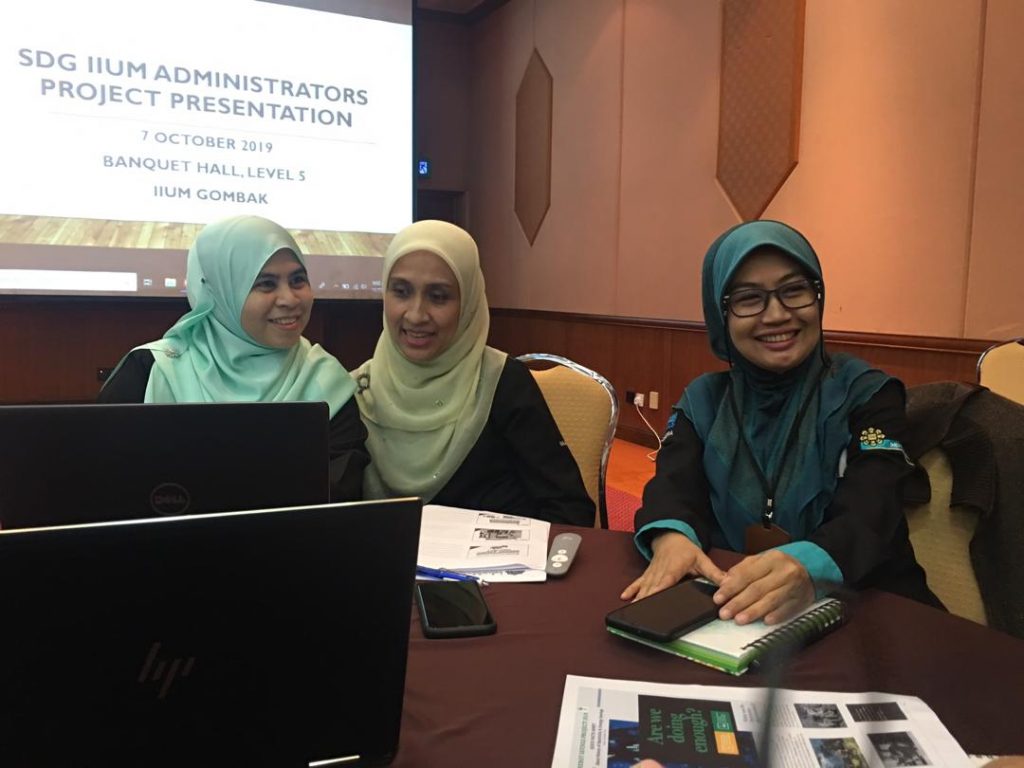

Muhammad Abdul Rauf (MAR) building was selected for the Energy Saving Project (ESP) pilot project due to the general observation that the majority of the male and female washroom in the MAR building was fully lighted almost 24 hours a day i.e. the building is almost vacant at night or weekends but those places were still lighted, plus the building being the focal point of the University administration and one of the most visited locations.
So, considering the fact that the lights will be automatically switched off after office hours, the 24-hour electrical usage will be reduced at least by half or 12 hours i.e. 7 pm – 7 am. Further savings were gained from non-utilisation over the weekends or public holidays.
The calculated electricity savings upon installation of the motion sensor devices at selected areas within MAR Building was RM 23,812.83. per annum. Other significant impacts that the team expects to achieve from this project was the reduction of carbon emission (CO2) and an increase in awareness among the occupants of MAR building as well as the students and the public on energy-saving initiatives by the University.

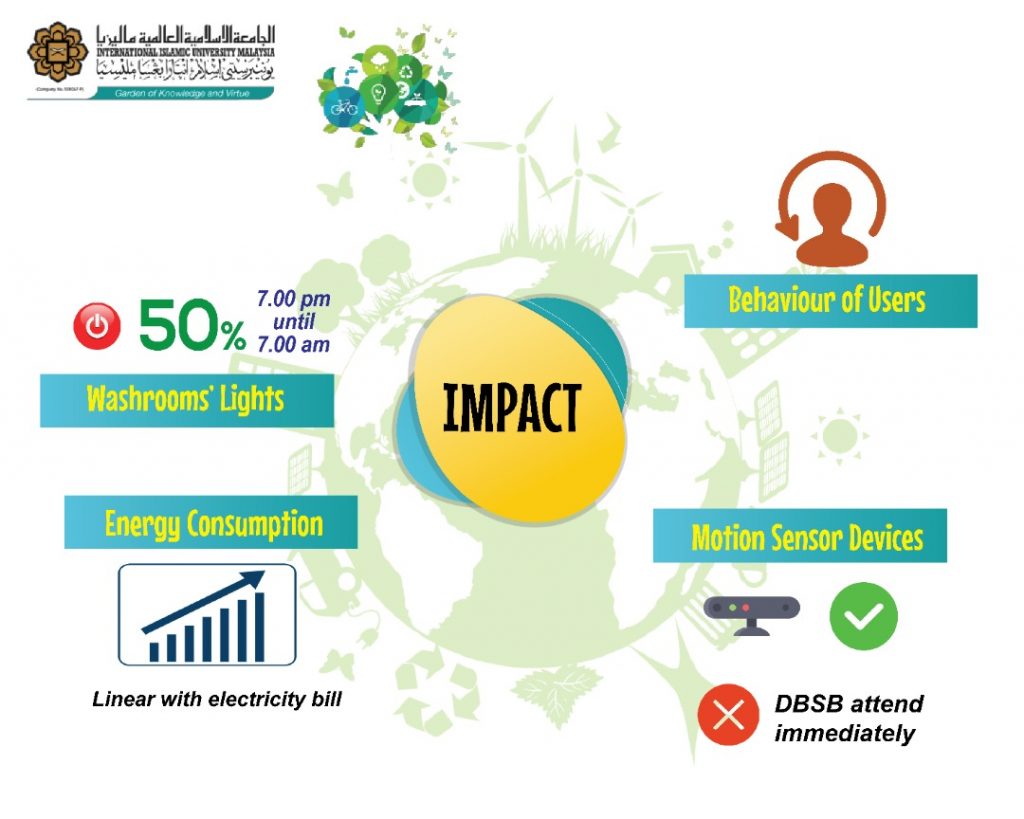
Date | Activities during the Pilot Project |
7 Oct 2019 | Approval of the project – SDG Workshop for 11DM Administrators Project Presentation |
22 Oct 2019 | Coordination Meeting with relevant parties |
31 Oct 2019 | Preparation of documents for approval of University Authority e.g. procurement of motion sensor devices |
3O Nov -15 Dec 2019 | Installation of motion sensor devices in MAR building |
Jan – Feb 2020 | Monitoring Period of Electricity Bill |
16 Mar 2020 | Preparation of Report on Analysis of Cost Saving |
20 Mar 2020 | Presentation of Report |
Several motion sensor devices were installed at the male and female washrooms within the MAR Building, where high electricity wastage was identified. The installed devices operated as expected, whereby the lights automatically turned off when nobody was around in those areas.



The critical success factor of ESP was getting the supports and cooperation from the following parties:-
a) Development Division
– To approve the implementation of the project.
– To monitor the physical development of the project.
– To provide an electrical consumption bill, before and after the project.
b) Occupational, Safety, and Health
– To provide safety information for the project.
c) Daya Bersih Sdn. Bhd
– To advise on the suitability of the device needed for the project.
– To install the device at the designated locations.
d) Finance Division
– To allocate the budget for implementation of the project
From a simple survey responses received from users of the restrooms affected, adjustments were made to cater to the their comfort and adaptability requirements.
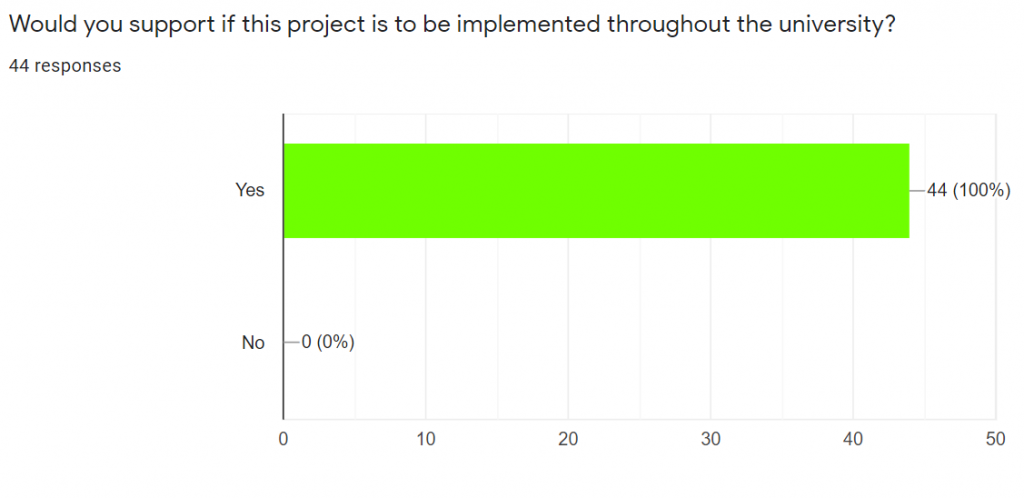
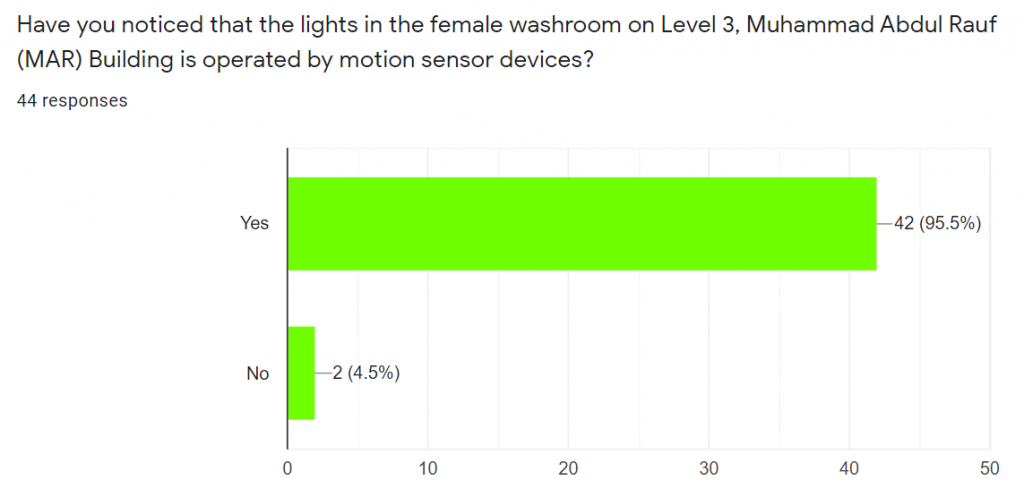
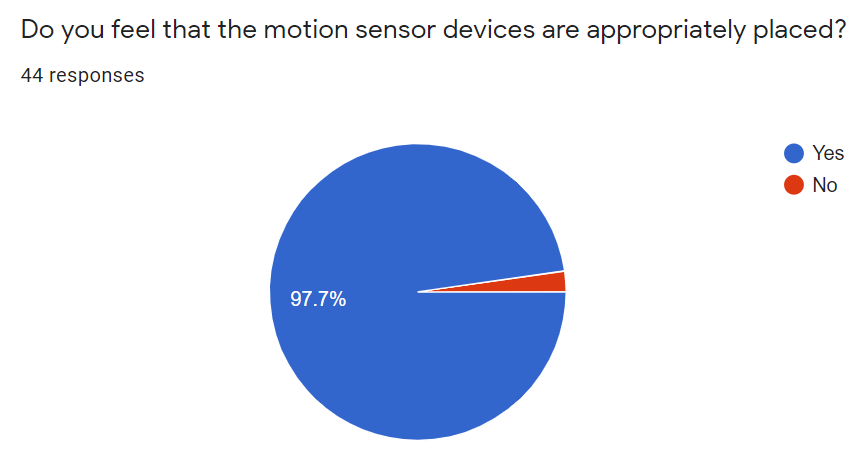

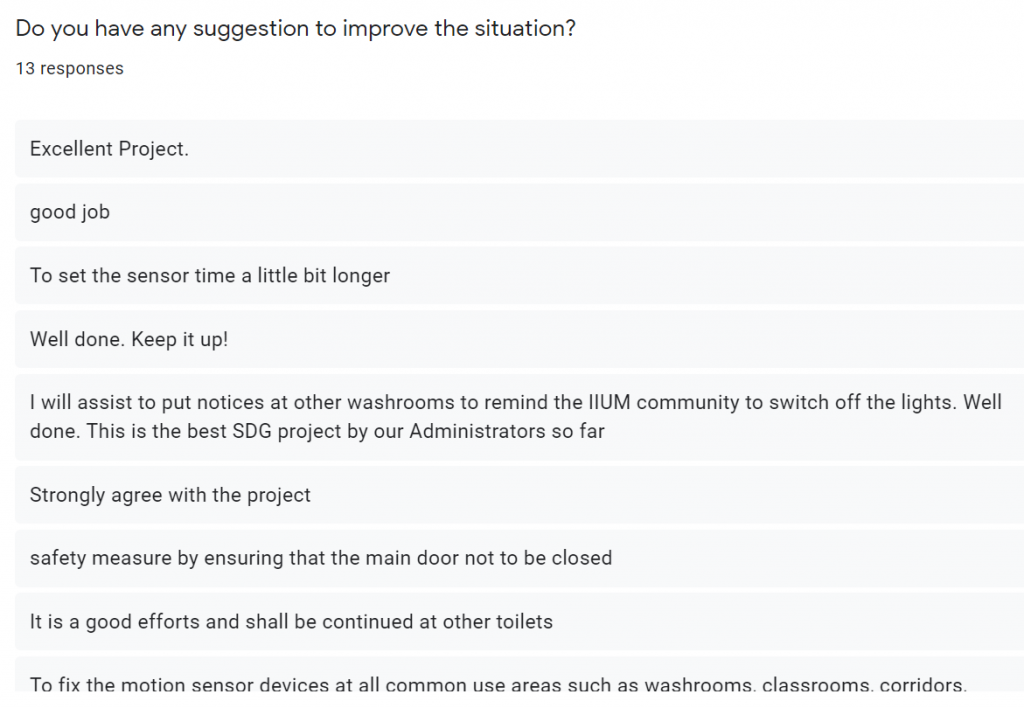
The awareness of energy-saving will ultimately be spread among the IIUM community, who may find more mechanisms to help save energy and avoid rampant wastages around the campus. Continuous exhibitions and supports received especially from the top-ranking officers of the University and overall staff in general shall ensure the success of this project throughout the campus.
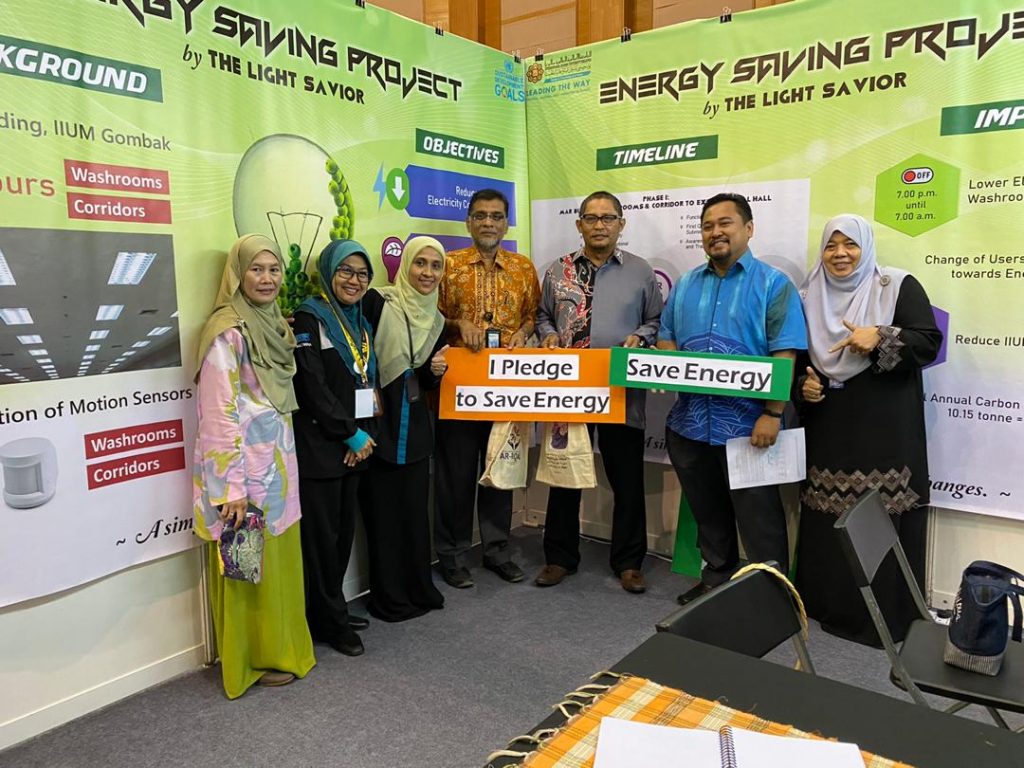
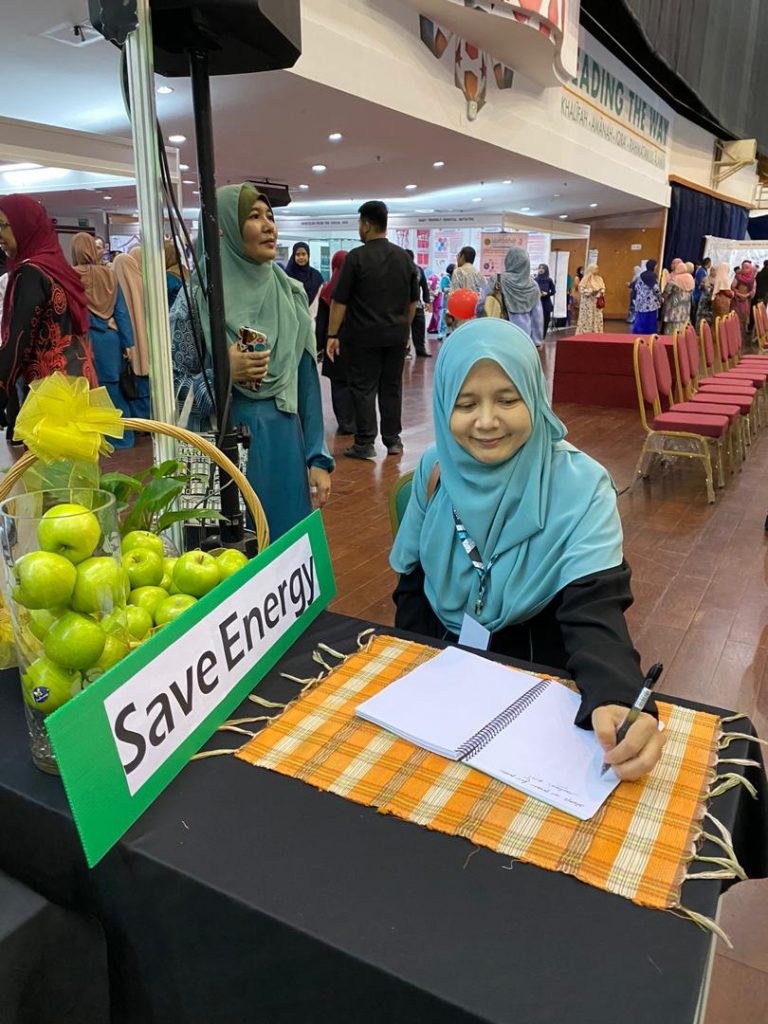




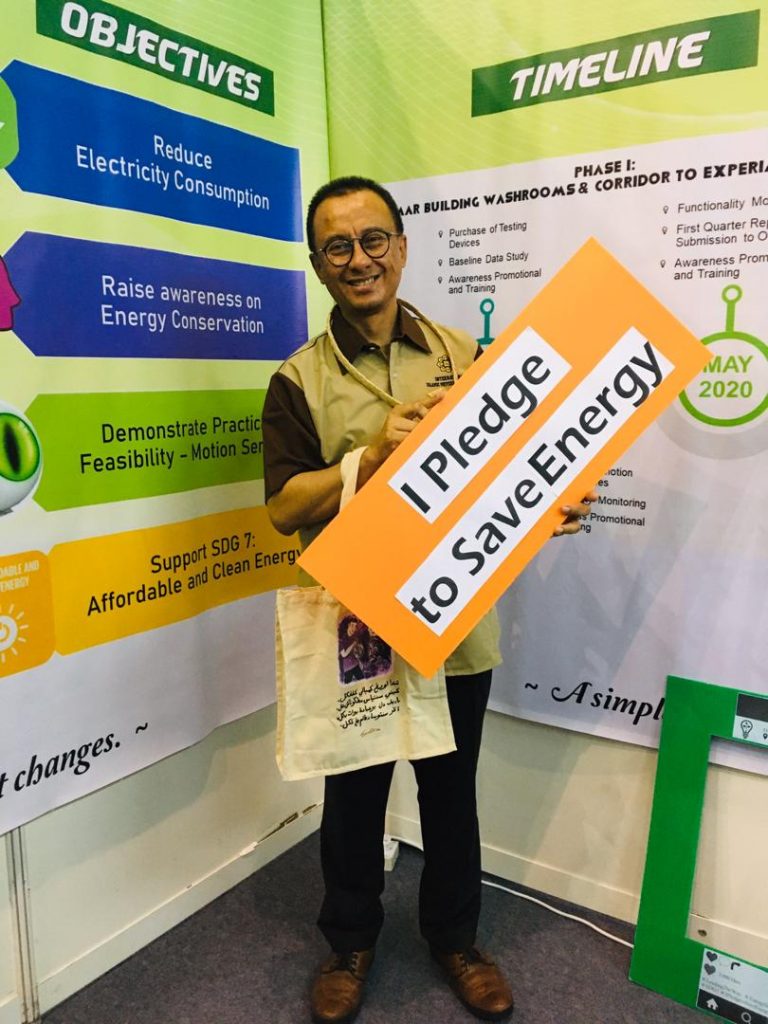


TEAM MEMBERS OF THE ENERGY SAVINGS PROJECT
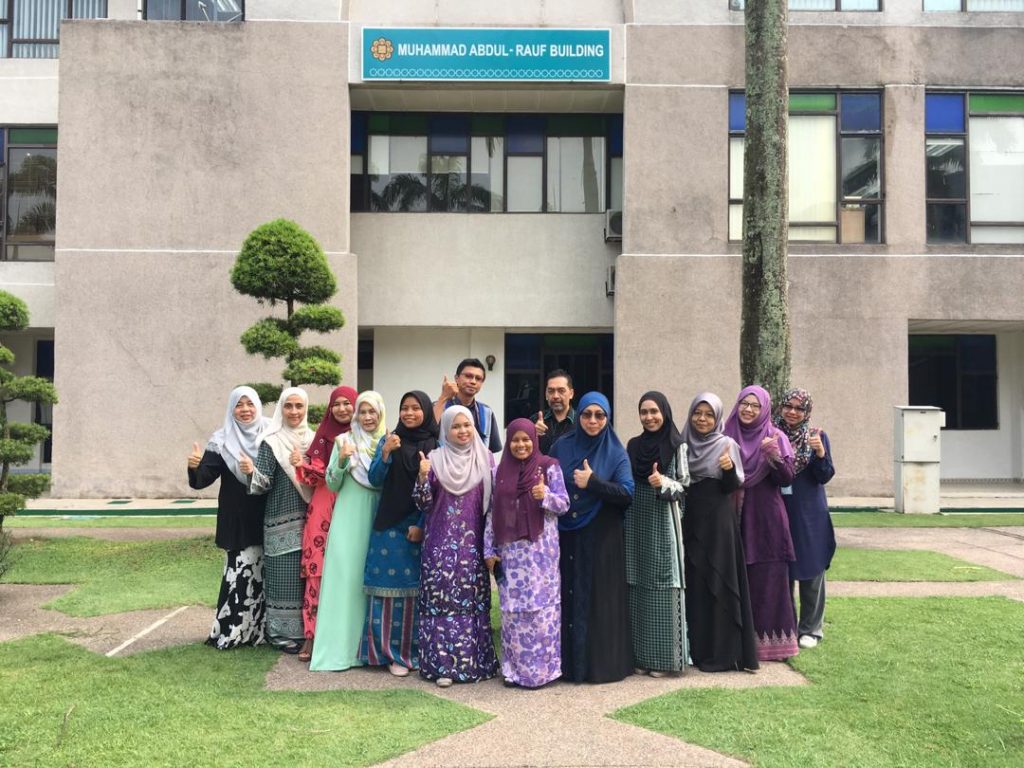
SPECIAL HIGHLIGHTS :
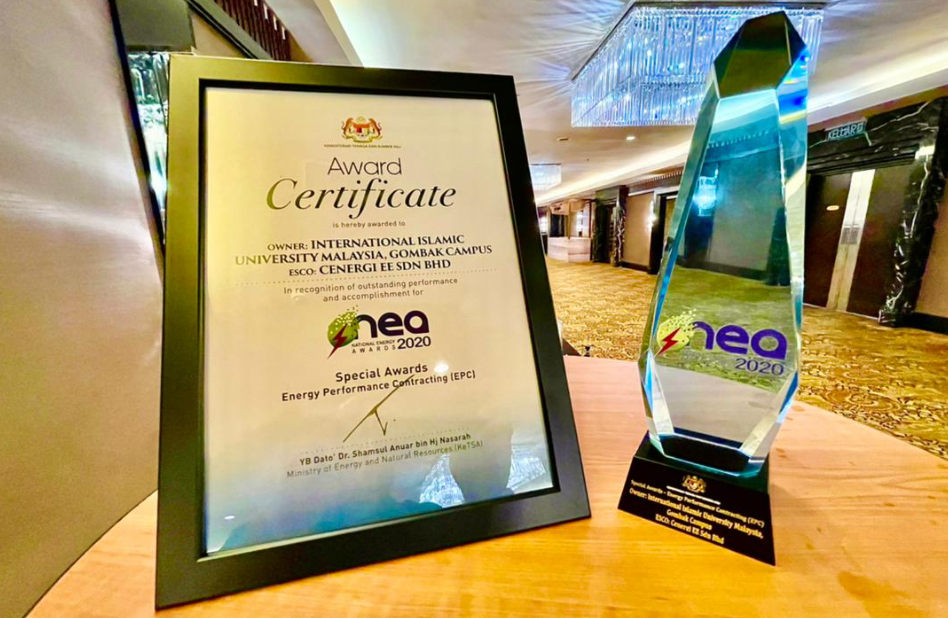
NATIONAL ENERGY AWARD 2020
The International Islamic University Malaysia (IIUM) was selected as the winner in the National Energy Awards 2020 under the Special Awards Category (Energy Performance Contracting).
WAY FORWARD :
Several Mahallah (student hostels) administrators have already shown their interest to adopt the project at their places for ESP Phase 2 projects 2021.
